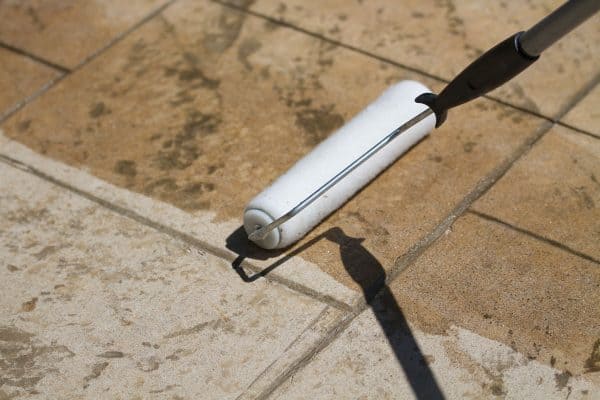Disclosure: We may get commissions for purchases made through links in this post.
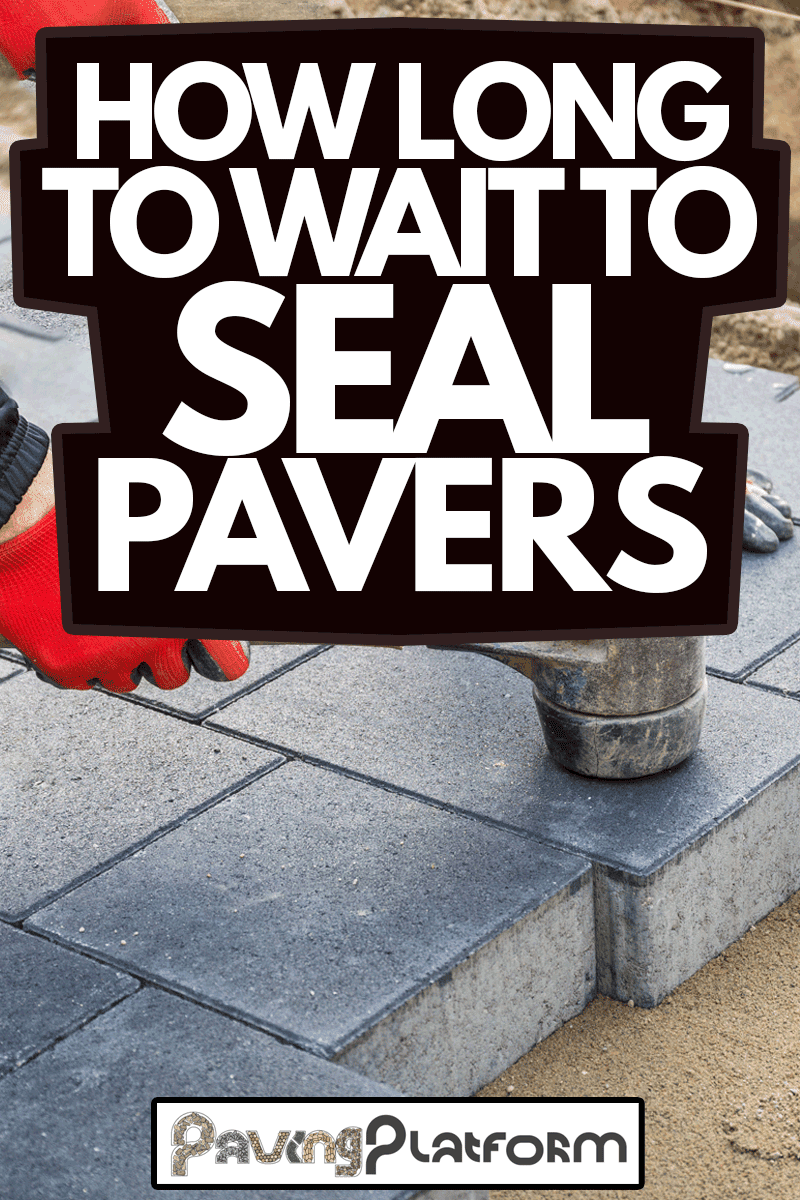
Were you looking around on your patio and noticed something off? Looking closer, you observed that your pavers are in need of a sealant -they are starting to erode. What should you do when one of the most difficult repair jobs is sealing pavers? We've researched how long you can wait to seal pavers, before it's too late!
Before you could seal pavers, you must wait until it is completely dry because a wet paver can make the sealant stained, blotchy, and discolored. The waiting interval usually takes 60 to 90 days. If it is a dry season, you will have to wait at least 30 days. It also depends on the type of pavers you will use.
Sealing pavers can be a tremendous job especially if we are doing it ourselves. Having the relevant information when doing this typical kind of work can save us a lot of time. You have to follow procedures in order to avoid future problems. So, keep reading to learn more about sealing pavers.
Should I seal my new pavers?
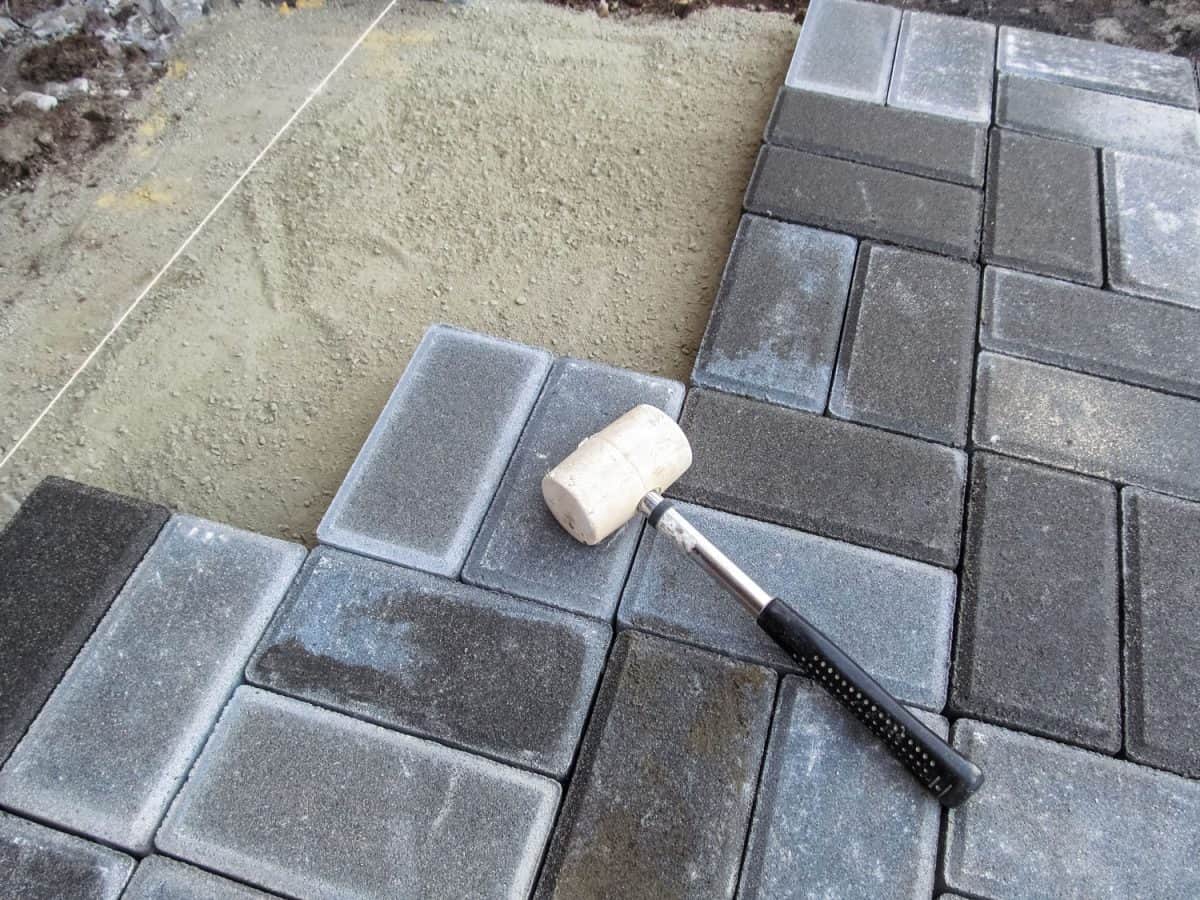
It is beneficial to know that sealing pavers is an important task. Experts recommend this to people who are interested in installing pavers. Sealing is the best way to ensure that these paving stones last longer. Not only that, but it could also prevent erosion and discoloration.
After the installation of new pavers, or after cleaning old ones, a paver sealer should be applied to the area. It would then waterproof the entire surface and it would also protect the stones from extreme heat and radiation of the sun. Proper maintenance will ensure that the material will be durable enough to withstand extreme rain, heat and snow.
When is the best time to seal pavers?
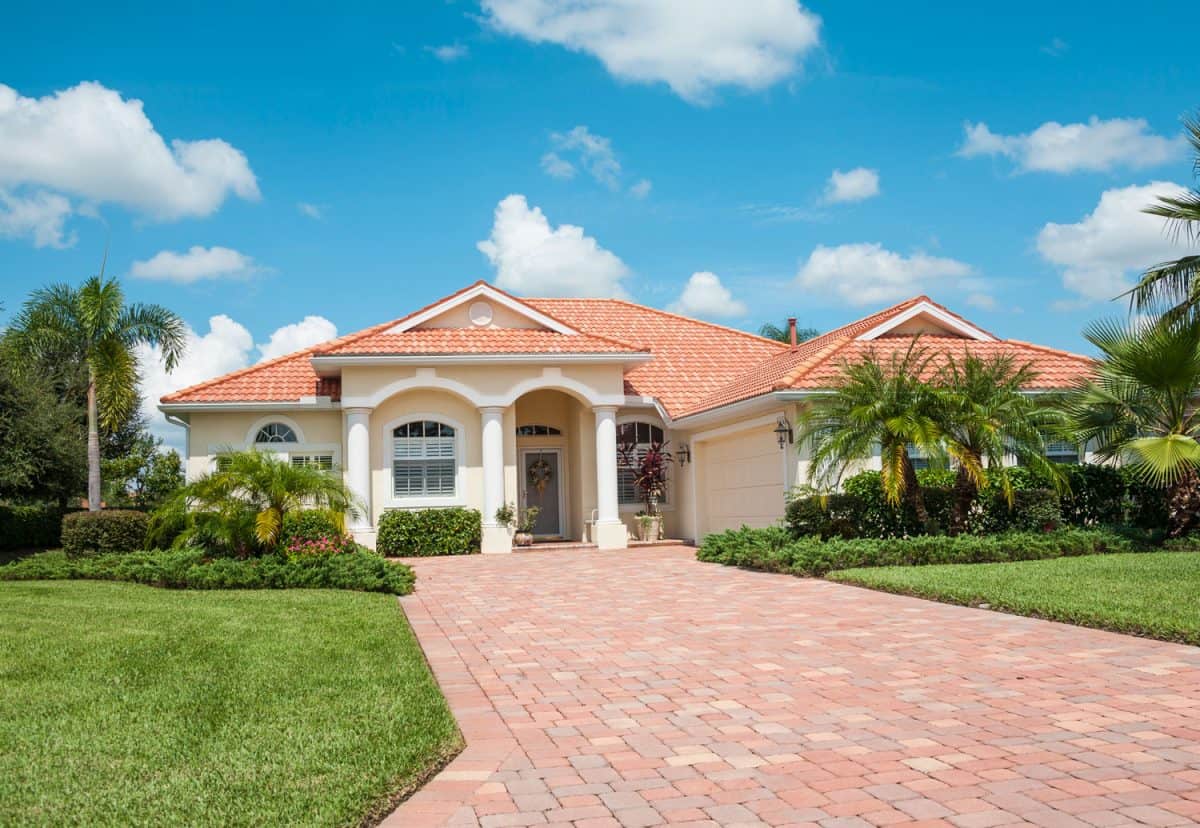
Climate is a factor you must consider when sealing pavers. Although some people do it, it is not advisable to do this activity during the rainy season. We should keep in mind that the surface must be completely dry before applying the sealer. This is the reason why it takes more than a month before we could seal off the pavers.
What happens if you seal wet pavers?
Sometimes, this situation cannot be avoided. What happens if you seal wet pavers? Well, to be honest, the overall impact of pursuing to seal the paving stones even though they are wet would make the sealant frail. The pavers will be easily damaged making it aesthetically displeasing.
For a start, do not apply more sealant to the damaged coating because it could only ruin the area more, and it can be more difficult to fix. The best thing to do is to apply a solution that can liquidize the blemished coat of the sealant. This way, you can start again. The only downside to this is that you are back to square one.
Before administering the solution, you should know what type is applicable to the sealant you are using. Once you are done applying the solvent, you should clean and rinse the area; afterward, you must wait until the pavers are dry again before continuing to seal the paving stones.
Pros & Cons of Sealing Pavers
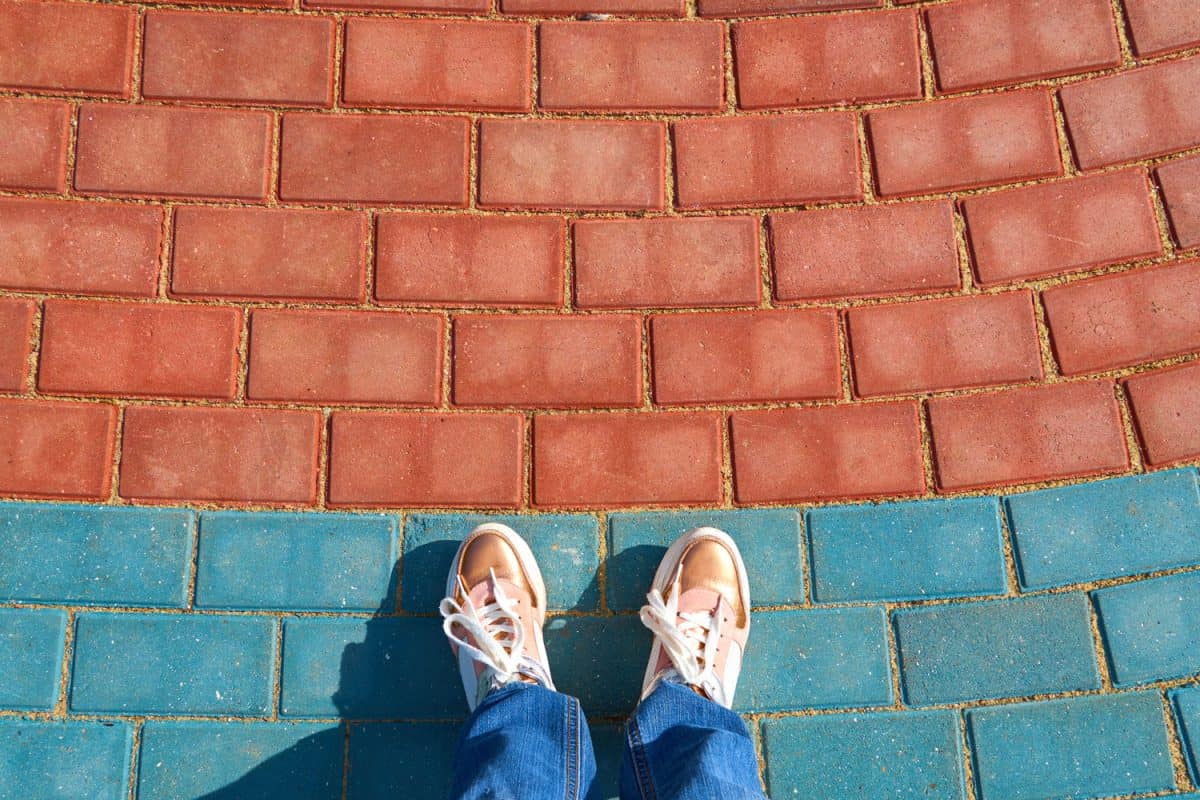
Pros
- Sealing your pavers will keep weeds and grass from growing in between the stones.
- It is aesthetically pleasing.
- It offers resistance against different weather conditions.
- It keeps the pavers safe from mildew, discoloration, and erosion.
Cons
- Sealing your pavers is expensive because it requires proper maintenance.
- It will be time-consuming because you have to be careful when applying the sealant. It usually requires multiple applications before you could be successful.
- It will be necessary to reapply the sealant yearly or every two years.
- You will have to take safety precautions when sealing the pavers because the sealant can cause skin irritation.
Why is sand coming up from my pavers?
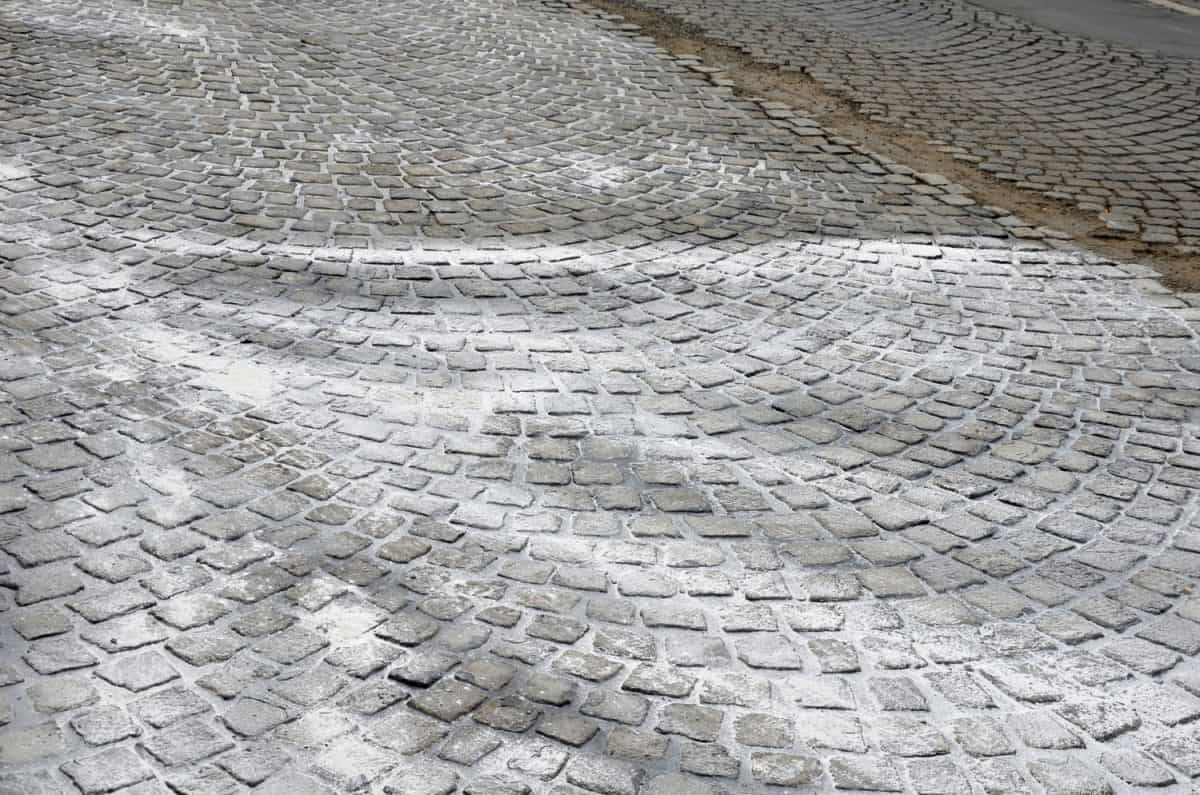
Pavers are susceptible to deterioration because they are exposed to harsh environmental conditions such as heavy rain, snowstorms, extreme heat, etc. Because of this, the joint sand in between pavers may be washed away over a period of time. The occasional use of a pressure washer can also erode the joint sand.
This kind of problem requires an immediate solution. It can cost you a huge amount of money, time, and effort if you neglect the first signs of paver deterioration.
One way to prevent sand from being washed out is to use paver sealers in between the stones. This chemical acts as a glue that holds the sand together. Keep in mind that in order to avoid this problem, you must apply a sealant every year to keep your pavers durable and attractive.
Click here if you are curious about why your polymeric sand not hardening.
How to clean new pavers before sealing?
Cleaning new pavers is a process that you need to accomplish before you start sealing. There are numerous ways to clean paving stones. The difficulty depends on what cleaning method you will apply.
Removing Weeds
You could remove weeds by pulling them manually or if you do not have enough time, you can use specific tools. You can also get rid of weeds by pouring boiling water or by using organic herbicides.
Removing Moss
Another thing you need to remove is moss. You can do this by pouring vinegar or baking soda. All you have to do is to apply this substance over the moss, then you need to wait for a few minutes for it to work. After this, you can start washing the paving stone with a garden hose.
How much does paver sealer cost?
A long-lasting sealer is the type of paver sealing that we should use. However, the cost would depend on how large the area that is needed to be cleaned and sealed, plus the sealers that we would use on the pavers.
If you have brick pavers in your hardscape or any place it would be nice to have them upgraded, you should always make the pavers look nice and new. However, it would be a huge task over the years. Putting any type of coating for the pavers to be sealed is not the only right thing to do because we have to know if they are good or bad sealers.
If you seal pavers by yourself, the expenditure would be worth around $300-$500 after you bought the things needed such as a sealer mixing bucket, a sprayer for the coating, and sand to resend the joints. However, if you did it in the wrong way there is a chance that you could end up paying triple.
Having someone professional to do your pavers is highly recommended. The cost would normally be around $1.00 per square foot -the cleaning, sanding, and sealing are also included in the $1.00. So if the area that needs to be sealed is around 500-sqft, those pavers would cost around $500.
But the cost would still depend on the quality of the job on doing the seal paver. If you have been helped by a professional the budget is $1.00 per square foot and if you did it on your own the budget would be around $500.
In Closing
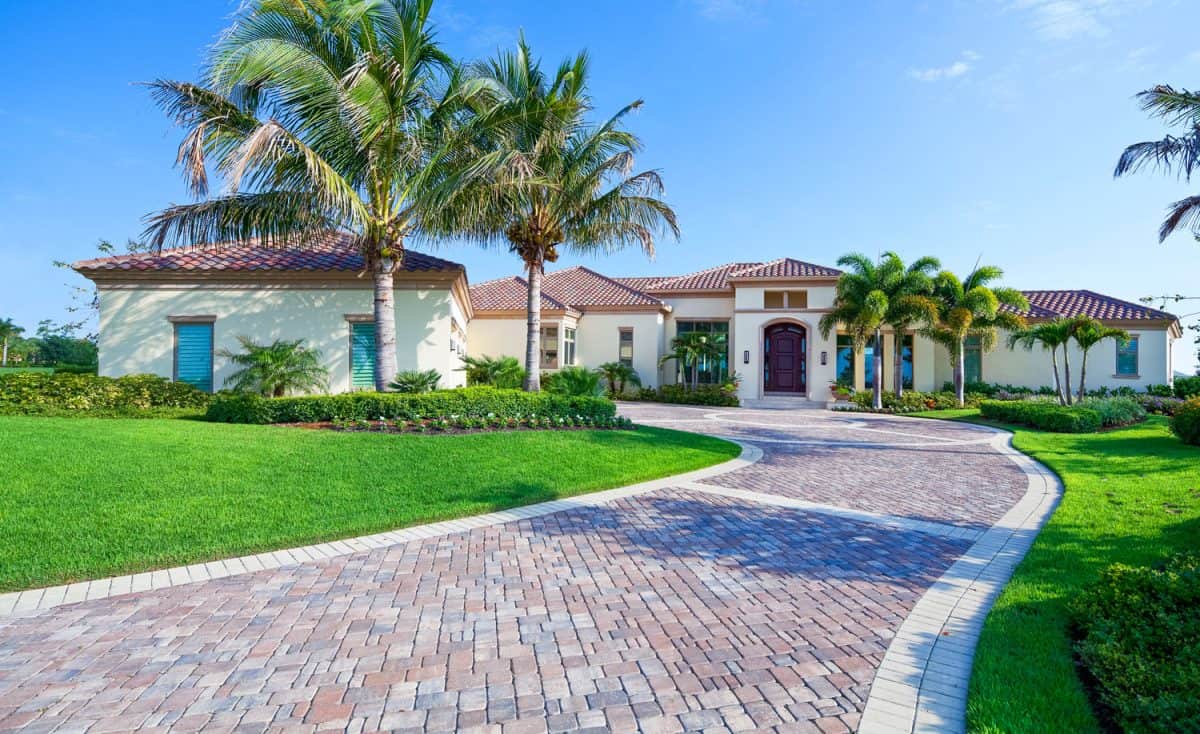
Sealing pavers is a task you must not take lightly. Keep in mind that the paving stones should be dry before applying a sealant. This way, the good quality of the material is ensured.
It is also advisable to clean your pavers before sealing them to avoid unnecessary problems.
Being an owner of patio pavers requires you to have time, effort, and money. It would be best to properly maintain it in order for it to still have a great look in the years to come.
If you are interested in upgrading your driveway, and if you are torn between using pavers or asphalt, check this article for more information.

![Vibrant Red Paver Stone Path, Can You Spray Paver Sealer? [How To Apply It]](https://pavingplatform.com/wp-content/uploads/2022/04/Vibrant-Red-Paver-Stone-Path-600x400.jpg)
![Properly laid out red pavers for a garden, Can You Tint Paver Sealer? [And How To]](https://pavingplatform.com/wp-content/uploads/2022/04/Properly-laid-out-red-pavers-for-a-garden-600x400.jpg)
